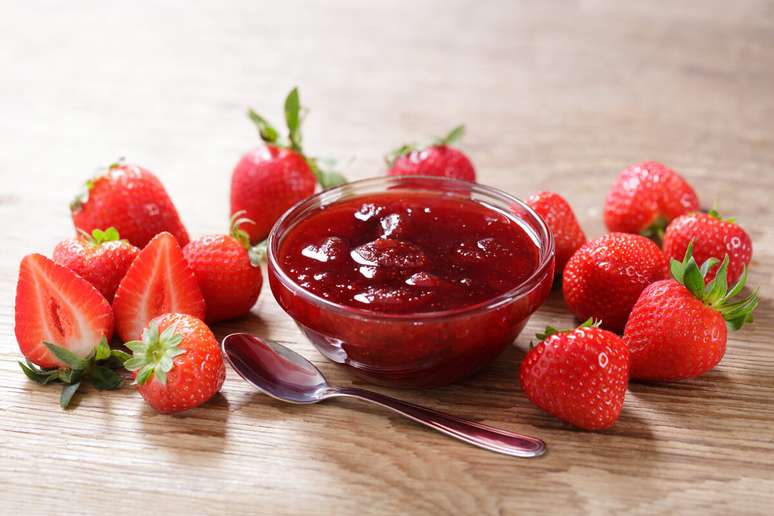The intake of this nutrient is essential for the well-being of the mother and fetus.
Folic acid, known as the synthetic form of vitamin B9 or folate, is a vital nutrient for pregnant women. It helps in the healthy development of the baby and reduces the risk of problems like congenital deficiency in the brain and spine. While folic acid supplementation is necessary in some cases of pregnancy, there are ways to increase your intake of this nutrient through these natural sources of folate in your diet.
html[data-range=”xlarge”] figure image img.img-2058c6cb75513c34e0201330c3cbc4eauwfjt3ao { width: 774px; height: 516px; }HTML[data-range=”large”] figure figure img.img-2058c6cb75513c34e0201330c3cbc4eauwfjt3ao { width: 548px; height: 365px; }HTML[data-range=”small”] image figure img.img-2058c6cb75513c34e0201330c3cbc4eauwfjt3ao, html[data-range=”medium”] figure image img.img-2058c6cb75513c34e0201330c3cbc4eauwfjt3ao { width: 564px; height: 376px; }HTML[data-range=”small”] .article__image-embed, html[data-range=”medium”] .article__image-embed { width: 564px; margin: auto 0 30px; }
According to nutritionist Alessandra Feltre, the recommended daily intake of folate for adults is 400 micrograms. However, during pregnancy, the need for folate increases, as it is also essential for the healthy growth and development of the fetus.
To ensure that women maintain adequate levels of folate during pregnancy, the National Institutes of Health and the US Institute of Medicine recommend a daily intake of 600 mcg of folic acid. during breastfeedingthis recommendation is reduced to 500 mcg.
Low vitamin B9 content can be harmful to mental health
According to the specialist, vitamin B9 deficiency is also associated with fetal malformations, cases of miscarriage, as well as various levels of mental retardation and difficulties in school learning. Furthermore, its insufficiency can contribute to symptoms such as anxiety, depression, fatigue, hair loss, inflammation of the tongue and high blood pressure during pregnancy.
Next, see 10 Folic Acid-Rich Foods to Include in Your Diet!
1. Citrus
Citrus fruits are an excellent source of folic acid. They can also be consumed in the form of juices, however it is advisable to avoid those with added sugars. Just one large orange contains 55 micrograms (mcg) of folic acid. Citrus fruits are also high in vitamin C, an essential micronutrient that can help boost immunity and aid in disease prevention.
2. Sunflower seeds
A popular choice in healthy eating, sunflower seeds can be used in homemade toast, cakes, breads, cookies, oatmeal and salads. Generally, the seeds contain about 23-30 micrograms (mcg) of folic acid per 100 grams. However, this amount can vary depending on the brand, type of sunflower seeds, and roasting process.
3. Bananas
Packed with a wide variety of vitamins and minerals, bananas are a real powerhouse. nutritional. It’s a versatile fruit that can be incorporated into many recipes to boost your folate intake in a delicious and healthy way.
4. Melon
the melon is a fruit refreshing and tasty that offers numerous health benefits. In addition to being an excellent source of hydration due to its high water content, melon also contains a significant amount of folic acid. Melon is also rich in vitamins A and C, as well as antioxidants that help protect cells. Its regular consumption can contribute to the health of skin, eyes and immune function.

5. Strawberry
From the group of red fruits, strawberries can be used in various recipes and satisfy the desire for sweets. During pregnancy. Refreshing and delicious, this fruit is a natural source of vitamins C and K. As for folic acid, about 100 grams of strawberries provide about 24 micrograms. To diversify consumption, an alternative is to prepare jellies, juices, smoothies and ice creams.
6. Dark green leafy vegetables
Leafy greens, such as spinach, kale and arugula, are low in calories but high in a variety of essential vitamins and minerals, including folic acid. For example, 30 grams of raw spinach provides 58.2 mcg. These vegetables are also high in fiber and vitamins K and A.
7. Beans and peas
The combination of beans and peas with other foods rich in folic acid, such as green leafy vegetables and citrus fruits, it can further contribute to meeting the daily nutritional needs. A serving of about 100 grams of beans or peas can provide 50 to 70 micrograms (mcg) of folic acid, depending on the type of grain.
8. Nuts
There are several reasons to consider increase intake of nuts and seeds. In addition to providing a good amount of protein, they are high in fiber and contain many of the body’s essential vitamins and minerals. Adding more nuts and seeds to your diet can also help meet your daily vitamin B9 needs. In general, walnuts contain 20 to 30 micrograms (mcg) of folic acid per 100 grams, depending on the type.
9. Avocados
About 100 grams of avocado contains about 81 mcg of folic acid. Avocados are also high in healthy fats like oleic acid, which is beneficial for cardiovascular health. Additionally, it has a variety of vitamins and minerals such as vitamin E, vitamin K, vitamin C, and potassium.
10. Broccoli
Adding broccoli to your diet can provide you with a range of essential vitamins and minerals. The food contains a significant amount of folic acid per serving. About 100 grams of cooked broccoli provides about 63 micrograms (mcg) of folic acid. Contributes to daily needs of this integration.
Source: Terra
Ben Stock is a lifestyle journalist and author at Gossipify. He writes about topics such as health, wellness, travel, food and home decor. He provides practical advice and inspiration to improve well-being, keeps readers up to date with latest lifestyle news and trends, known for his engaging writing style, in-depth analysis and unique perspectives.







-socaupx8a1ya.png)
